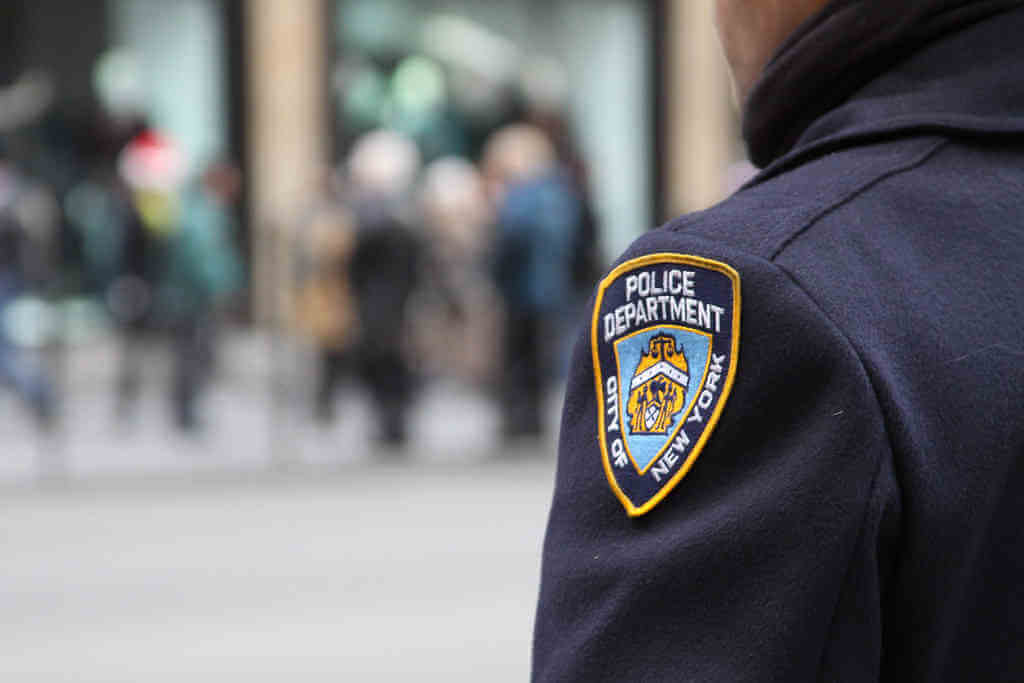A settlement stemming from a lawsuit that exposed the NYPD’s discriminatory policing of sex workers — including a disproportionate number of trans women of color — has forced the department to update its patrol guide to stop targeting people on the basis of “gender, gender identity, clothing, and location” when enforcing the controversial loitering law.
The patrol guide now states that those factors “are not sufficient alone or together to establish probable cause,” and cops will be required to provide more details and specificity when recording observations. Officers also now must be trained to understand that a person’s history of arrests for sex work-related charges cannot constitute probable cause or reasonable suspicion for an arrest.
The lawsuit, brought forth by the Legal Aid Society and Cleary Gottlieb Steen & Hamilton LLP on behalf of trans women of color, was initially filed in 2016 and stated that five police precincts accounted for nearly 70 percent of loitering for the purpose of prostitution arrests between 2012 and 2015.
The Legal Aid Society, which provides legal assistance to folks living in poverty, has represented women who have been arrested after cops assumed they were loitering for the purposes of prostitution. The organization noted in a June 6 release that it had clients who were arrested simply for wearing a “short dress,” “a skirt and high heels,” “tight black pants,” or “a black dress.” Women were also stopped for simply standing outside or walking from a subway or grocery store back to their home.
Sometimes clothing had nothing to do with the stops. The Legal Aid Society stated that one woman who was leaving a restaurant in a busy area when cops recognized her from when they arrested her in the past. The officers called her over and arrested her without cause.
“They see women who they know that have a history of prostitution and they profile us,” the woman said. “I should be able to walk wherever I want.”
Police officers admitted to looking for “Adam’s apples” when determining whether to detain a person they suspected to be a sex worker, according to the Daily News.
An NYPD spokesperson said that the department was already in the process of adjusting the patrol guide for some time, saying that the “changes reflected in this settlement are changes that have been well underway in the NYPD.”
“The NYPD is committed to providing clarity to our officers on loitering enforcement, and did so through a combination of amplifications to the patrol guide and enhanced training to ensure compliance,” Sophia Mason, an NYPD detective, told Gay City News. “We will continue to address community concerns about prostitution and, at the same time, take steps to address and prevent human trafficking and protect victims of sex crimes.
Many advocates view the NYPD’s patrol guide changes as only the first of multiple steps required to safeguard sex workers and those who are perceived to be sex workers. Public trust in the police department’s adherence to the patrol guide is already low after the NYPD recently came under fire for allegedly failing to adhere to patrol guide changes pertaining to the Right to Know Act.
Lawmakers could go much further by repealing the loitering for the purposes of prostitution law that has been dubbed “walking while trans” due to the targeting of trans women.
“This settlement provides our clients and others some justice but Albany must pass legislation repealing this problematic law,” said Tina Luongo, attorney-in-charge of the criminal defense practice at The Legal Aid Society. “Assemblywoman Amy Paulin and Senator Brad Hoylman have introduced a bill that would do exactly that. We call on other members of the legislature to join them and take immediate action to stop this harmful and unnecessary policing.”


































